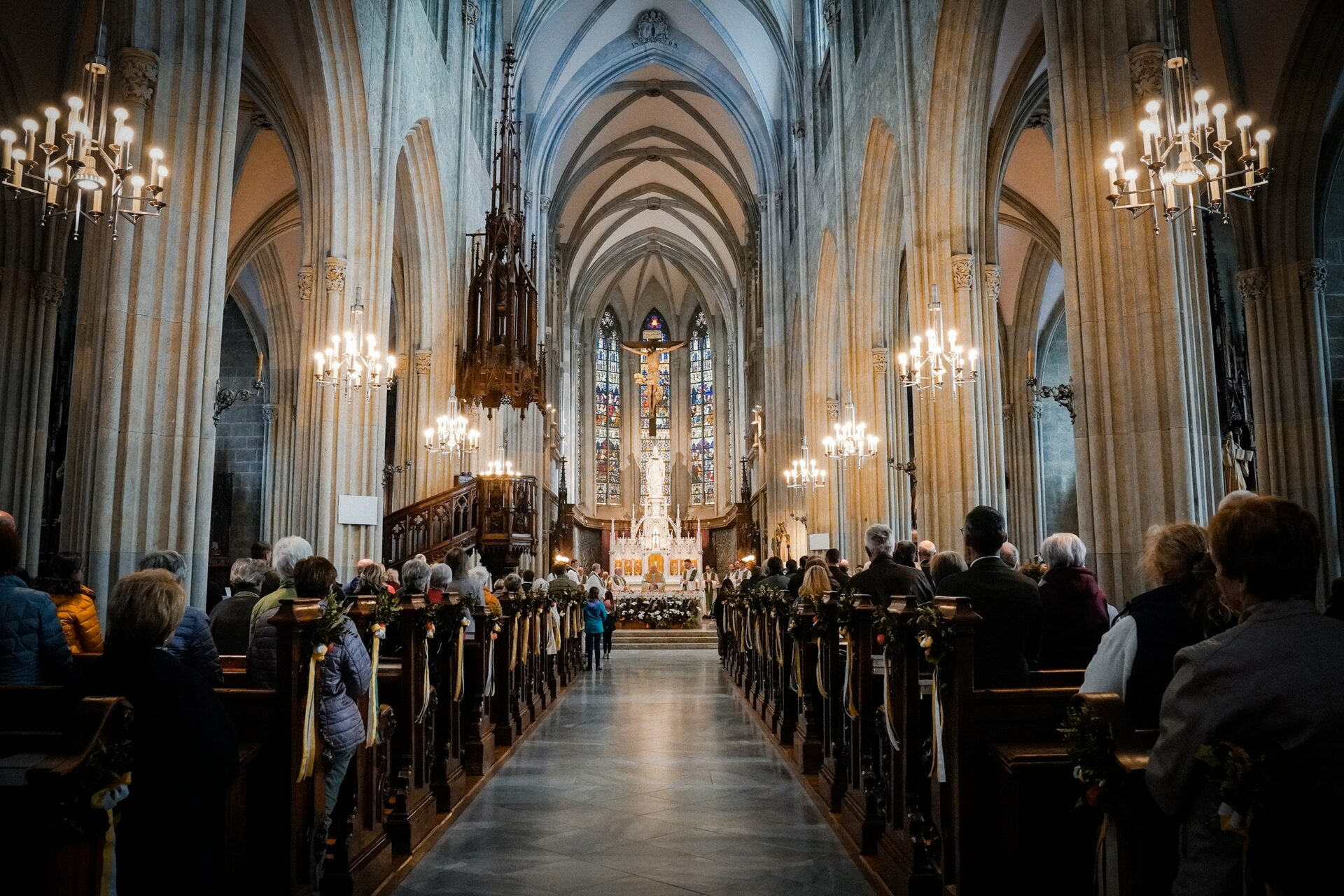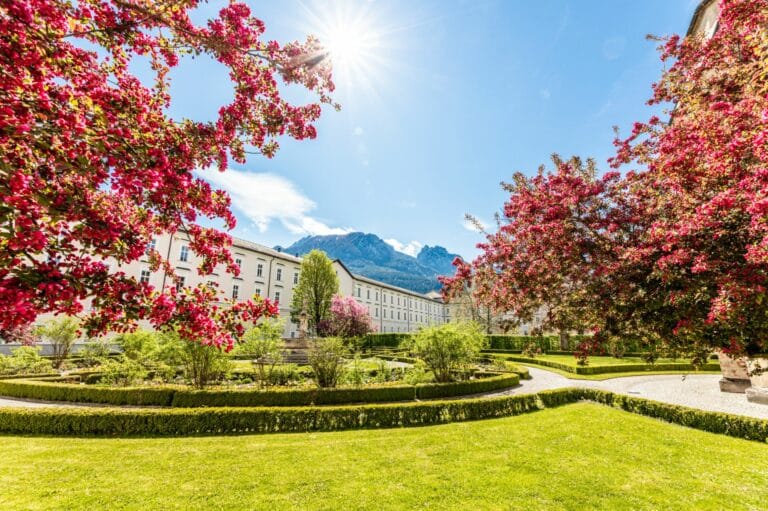Prayer: The heart of monastic life
The monks' most important task is prayer. Because, as Brother Josef Beer says, "when we pray, we put God first." Like his confreres, the Benedictine monk prays on behalf of all people who cannot bring their worries, fears and needs before God themselves.
The melodies are sung in unison and without instrumental accompaniment in the choir chapel of the Benedictine Abbey of Admont. The uniformity of the singing brings "calm and peace to our hearts," Brother Josef Beer. Several times a day, the Benedictine monk meets his confreres to pray together in choir. These prayers are usually held in German. On Sundays and public holidays, Vespers is held in Latin. This is because praying in a separate sacred language is intended to emphasise the festive character of choral prayer and the unity of the church, which does not favour any nation or language. The main part of the choir prayer consists of the psalms, "which Jesus already prayed," Brother Josef emphasises. The great importance of prayer was also noted by St Benedict: "When you hear the signal for divine service, put everything aside immediately and come with the greatest haste," says St Benedict's Rule, chapter 43.1. For Brother Joseph, coming before God in prayer also means doing so on behalf of all those who cannot express their needs, fears and worries themselves: "There are so many people who have never experienced God. Others have this longing in their hearts, but find it difficult to enter into dialogue with God. We want to come before God for these people and ask for their concerns."


Conversations like with a friend
"Prayer is the heart of monastic life. It gives structure and rhythm to every day," says Brother Josef. Admont's Benedictines meet at 06:15 to start the day with Vigil and Lauds. The conventual Mass follows at 07:00 in the abbey church, and on Sundays at 10:00. At midday the monks gather again for prayer. The day ends with Vespers and Compline at 5.45 pm. These are the times where prayer is recited together by the whole community. Additional moments of personal prayer occur throughout the day because "personal prayer can always take place. At any time of day or night. It is not determined by a fixed time or prescribed content," says Brother Josef. And how does it work? "Like a conversation with a friend to whom you tell what's on your mind," says the Benedictine monk.
For the monk, prayer also makes a significant contribution to deepening the relationship with God: "It's like a marriage or friendship. When you listen to the other person, talk to them and give them time, you become closer. I've also had this experience with God." It is often enough just to be there, as Brother Josef emphasizes: "Sometimes I sit in the abbey church, where I am with God in my thoughts, without saying anything. That can also be a form of prayer." So there are many different ways to enter into a relationship with God. Because "prayers are as individual as people themselves," says the Brother Josef, who emphasises: "Each of our tasks, which we perform with love and dedication, can also be a form of prayer. Because when we use our gifts and talents, we honor God by using his gifts."
Search for God
These individual prayers with personal content also show how much faith has changed over time. While prayers were a fixed part of social and family life just a few decades ago, today they are less frequent, "but have become much more personalized," says Brother Josef. Choir prayers in the monastery, on the other hand, continue to follow the same procedures, which are based on ancient traditions. Many of the psalms that are used have survived for around two thousand five hundred years. One of these psalms reads: "O God, my God, I seek you; my soul thirsts for you. My body pines for you like a dry, thirsty land without water. That is why I look for you in the temple, to see your power and glory." Brother Joseph has a special connection to these sentences: "They always help me to remember my vocation," he says. And what is this vocation? "To seek God. That is the main task of us monks." Will this search also end in a finding? "Yes, with our death. Then we will meet God face to face. But even now, God is recognizable to me in many ways," emphasizes the Brother Josef. He sees God above all "in nature, when I am in the mountains and can marvel at his creation. For me, that means being in the presence of God."





